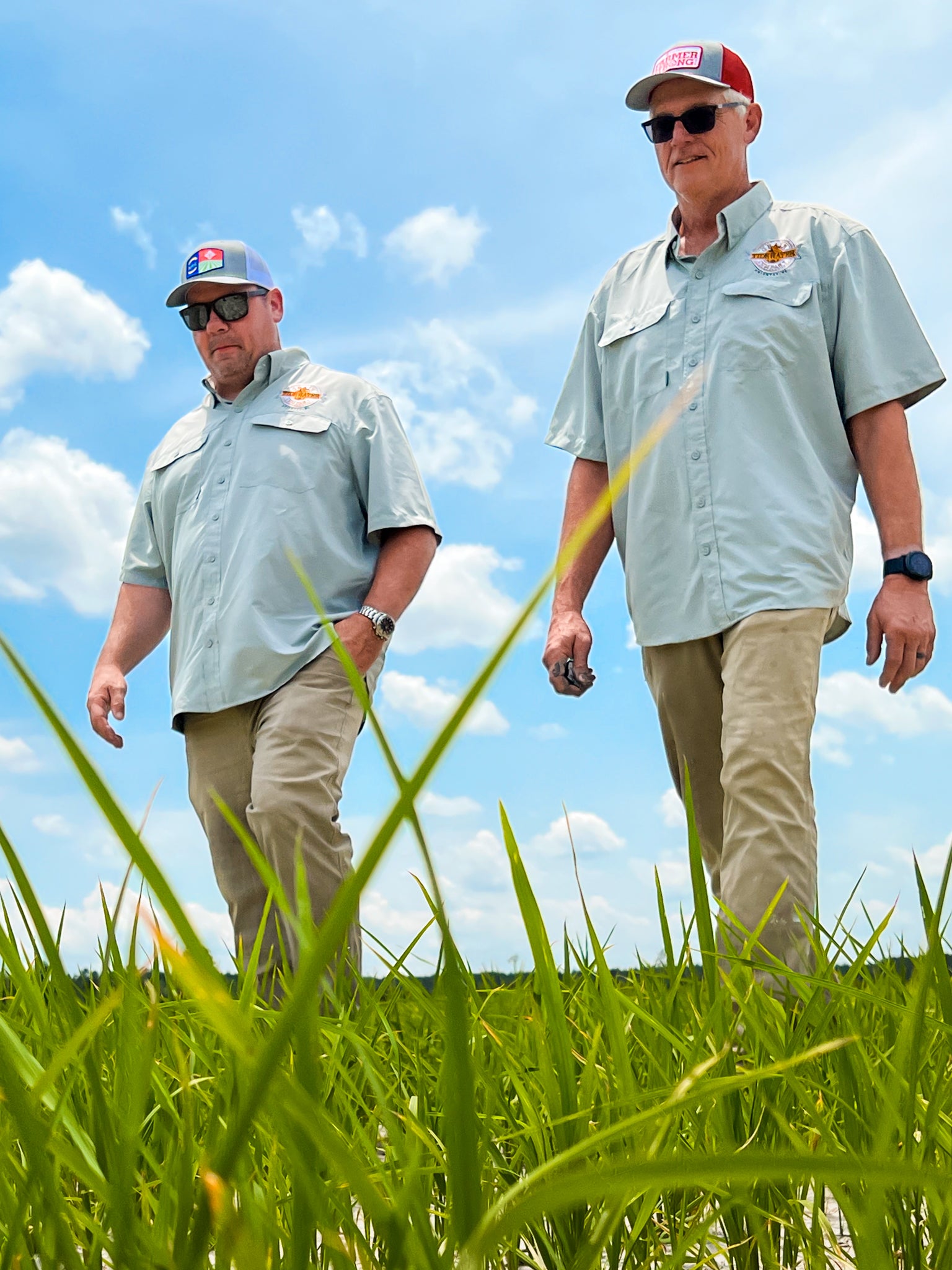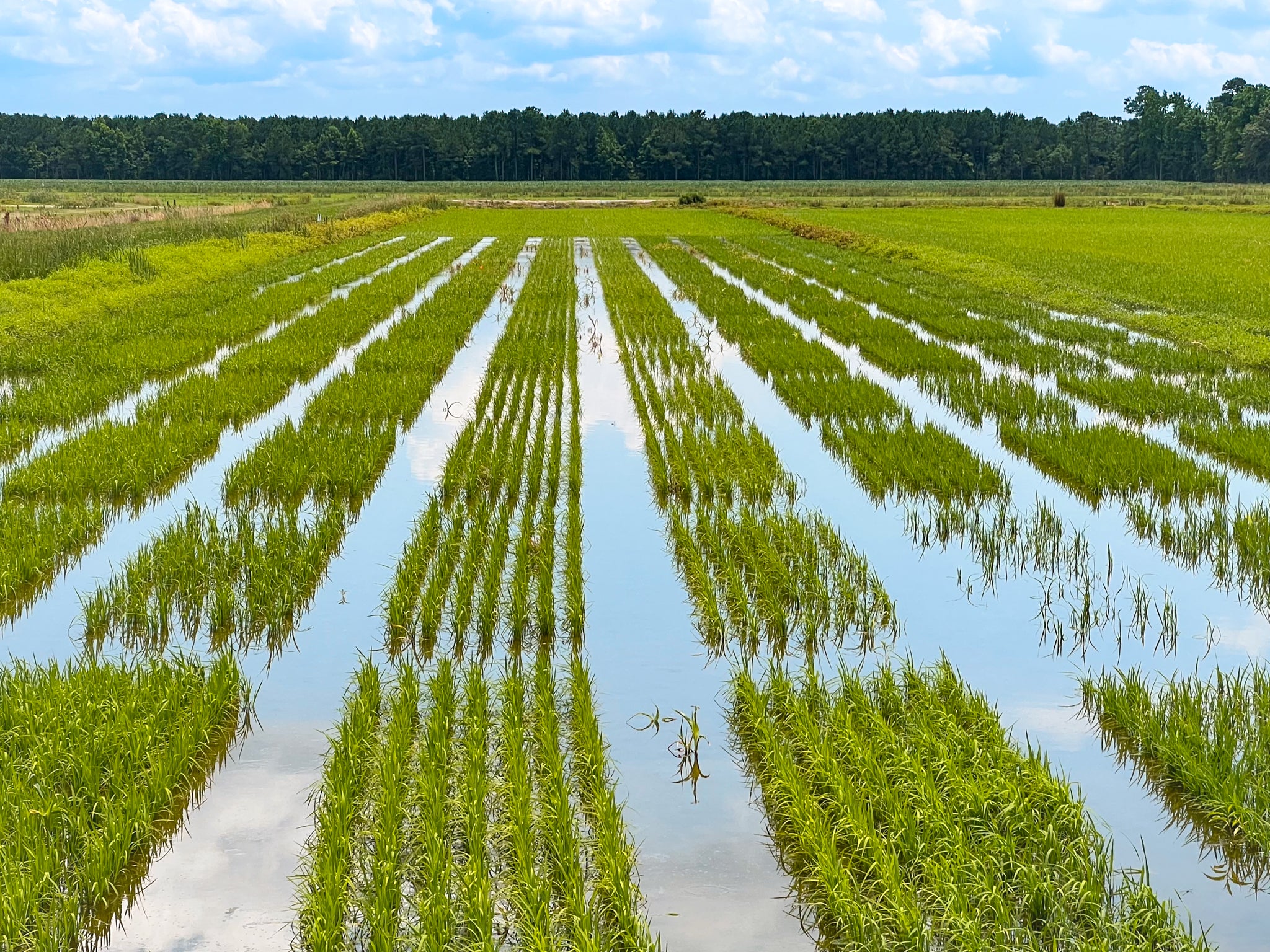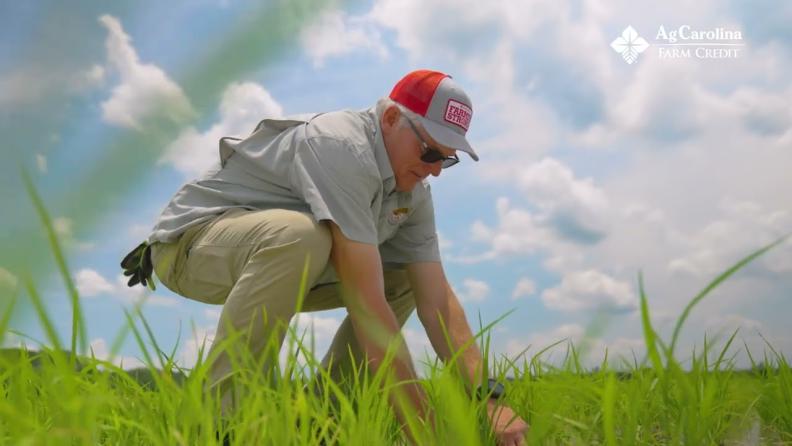An AgStory that started with Family, Fun and Ducks
 Tidewater Grain is a small family and farmer-owned specialty grain producer in Oriental, North Carolina. The farm was founded by Tommy Wheeler and Al Sprull, who were both born and raised in North Carolina and also fellow members of a local duck hunting club. The two friends started out with just three acres of land and a dream to achieve massive growth. Wheeler and Sprull are proud to call North Carolina home and have achieved much success at Tidewater Grain. Not only is their company highly successful, but they get to do what they love every day at Tidewater Grain.
Tidewater Grain is a small family and farmer-owned specialty grain producer in Oriental, North Carolina. The farm was founded by Tommy Wheeler and Al Sprull, who were both born and raised in North Carolina and also fellow members of a local duck hunting club. The two friends started out with just three acres of land and a dream to achieve massive growth. Wheeler and Sprull are proud to call North Carolina home and have achieved much success at Tidewater Grain. Not only is their company highly successful, but they get to do what they love every day at Tidewater Grain.
Tidewater Grain is the first and only North Carolina rice farm, which has allowed them to grow and mill Carolina Gold Rice, their flagship product. They offer GMO-Free white and brown rice as well as middlins or rice grits, rice hulls and a specialty long-grain variety of Carolina Gold Rice called Santee Gold. Tidewater Grain is centrally located and supports all areas in North Carolina. They sell to both retail and wholesale customers, and consumers can find the producers’ products in local restaurants, grocery stores and many other retail outlets.
Carolina Gold Rice is the heirloom “grand-daddy” rice that has expanded all across the United States from as far south as Augusta, Georgia to as far north as the Tidewater region of Virginia. Tidewater Grain grows a genuine product and strives to produce it the same way they did centuries ago. The grain grows more than five feet tall and is very complicated to produce. In the words of Wheeler, “If you can grow this rice, you can grow anything.” This theory is what makes Tidewater Grain so special: they are willing to grow and process crops that require a lot of skill and hard work to achieve.
Tidewater Grain is the first farm in the world to grow the award-winning Santee Gold long-grain rice variety, which dates all the way back to 1685 when rice was the number one crop in North Carolina. However, after the Industrial Revolution, rice production in North Carolina began to fade away until Tidewater Grain brought it back.
Tidewater Grain plants the seeds dry in April and floods the rice plantation at the end of May all the way through August. They prepare to harvest the rice at the end of August before hurricane season, and the Carolina Gold Rice drying process can take weeks after harvest.
 Tidewater Grain has goals of their Carolina Gold Rice being served and sold in every county of North Carolina. So far, they are almost halfway there, selling and serving in about 50 counties in North Carolina. They distribute their products through e-commerce and retail stores throughout the United States from 1 cup to 30 pound buckets. Tidewater Grain has a big focus on the authenticity of their company and they attribute this to their success. It’s important to them to share the story about Carolina Gold Rice, their water quality, how things used to be, and how things can be now so people can understand where their food comes from. They also understand that people today are more health conscious and aware of what they put in their bodies, which is another reason for their customers to know how they operate.
Tidewater Grain has goals of their Carolina Gold Rice being served and sold in every county of North Carolina. So far, they are almost halfway there, selling and serving in about 50 counties in North Carolina. They distribute their products through e-commerce and retail stores throughout the United States from 1 cup to 30 pound buckets. Tidewater Grain has a big focus on the authenticity of their company and they attribute this to their success. It’s important to them to share the story about Carolina Gold Rice, their water quality, how things used to be, and how things can be now so people can understand where their food comes from. They also understand that people today are more health conscious and aware of what they put in their bodies, which is another reason for their customers to know how they operate.
As much as Wheeler takes pride in his authentic Carolina Gold Rice, what he enjoys most about Tidewater Grain is his friends and family. He wakes up every day and works hard for people in the generations to come. He loves that he gets the opportunity to provide a legacy that will live far beyond his time on earth.
AgCarolina is proud to be a vital partner for Tidewater Grain.
“For us, AgCarolina is not a bank or lender, but a friend that always has our back no matter the situation,” says Wheeler. “They have been there every step of the way. They provide us with a product that would be impossible to go without.”
Tidewater Grain also appreciates that they are in constant and honest communication with AgCarolina. AgCarolina is involved in all of what Tidewater Grain does and is a huge help with the milling, seed growing, farming, producing, grain storage, invoicing, packing and distribution processes through their financial support.
